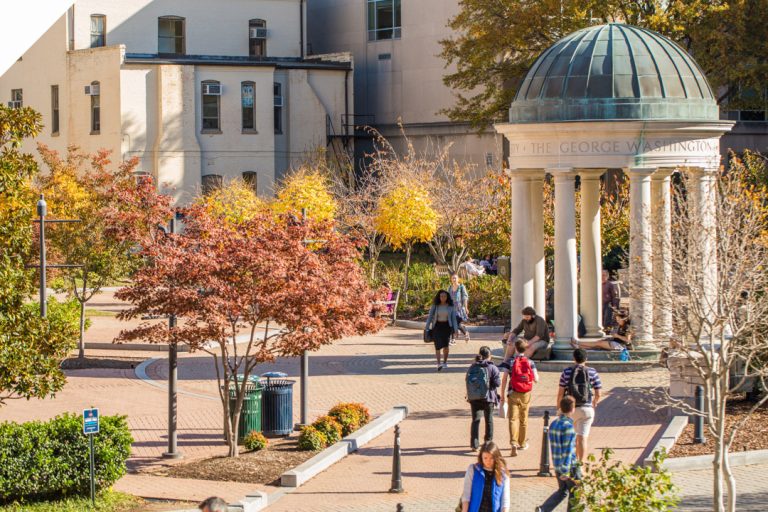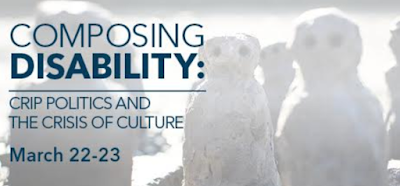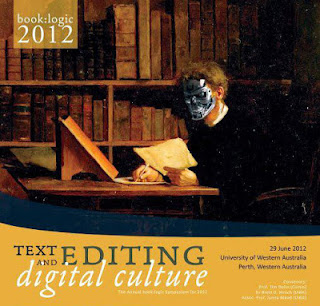 |
| A view of Dublin |
Our first Academic Year 2013-2014 entry in our On the Road series comes from Assistant Professor Daniel DeWispelare:
Research archives exist in diverse forms: some actual, some digital, others museal, or microfilmic, etc. And for a certain species of literary scholar, of which I am one, the physical archive is a sweet spot, an institutional locus amoenus, or “pleasant place,” that inimitable space where discoveries await the diligent and curious fan of textual arcana.
.JPG) |
| A library in Scotland |
As with most things, of course, curiosity and diligence alone rarely ensure access. For this reason, I am tremendously fortunate and thankful to be the recipient of a generous research support grant from the Columbian College Facilitating Fund, a grant that quite literally “grants” me the time and financial support necessary for traveling to, dwelling in, and interacting with some of my field’s most exciting archives. Specifically, I spent most of the summer of 2013 consulting and transcribing eighteenth- and nineteenth-century texts at the National Library of Ireland, with a short detour to the National Library of Scotland.
These institutions house documents relating to—among many other things!—long-standing research interests I have in geographies of provincial publishing, nonnormative anglophone writing practices, English language pedagogy, and the history of literacy. Not only was consultation these texts essential for one of my current manuscript projects, provisionally entitled The Artistry of Authenticity, but I spent a great deal of time personally digitizing (and paying through the nose for professionally digitized) documents that will form the primary nucleus of a digital database I will be developing over the course of the next few years.
In fact, digitization is a key element of my grant proposal and will remain central to my archival practices at the NLI and the NLS over the coming years. While the digital revolution has brought approximately 180,000 texts from the eighteenth-century online in forums like ECCO (Eighteenth-Century Collections Online and Google Books), roughly 220,000 of the period’s texts (as listed in the English Short Title Catalogue) remain inaccessible to scholars except onsite. Archival work thus has the potential, especially given today’s technology, to reformulate the very contours of the archive, which is another way of saying that the researcher can act on and alter the research object in ways that enable new questions and new answers. Acting on the archive as research object is to change what exactly is taken to be representative or emblematic of the archive’s contents, and so when scholars speak of an archival discovery, often they are speaking about some new way of assembling the texts that reveals cultural or intellectual patterns previously deemphasized. Hence, being in the archive can be very fulfilling and can feel full of potential. The National Library of Ireland is special in that they charge very few fees for access and reproduction relative to peer institutions in the British Isles and Europe.
The openness of the National Library of Ireland derives, insofar as I can tell, at least partially from Irish educational culture, which places a great value on the wide accessibility of texts that are seen to be part of national patrimony. And make no mistake, the reading room is often filled to the gills with Irish college students engaged in their own or assigned projects. Furthermore, the NLI seems–more so than other national libraries I have visited—to be successful at encouraging and assisting domestic and foreign researchers in taking full advantage of the trove of texts they have on offer. This is perhaps fitting, as the history of written culture in Ireland is one of Europe’s longest and most well preserved, all of which I mention merely to suggest that undergraduates and potential Luther Rice fellows from the English department who are looking for an open and inviting institutional archive might keep the NLI in mind.
 |
| Samuel Beckett Bridge, Dublin |
It is of course no secret that Dublin is a wonderful and dynamic city to spend time in. This was certainly my experience, although being some one who is naturally allergic to late nights and volume, I spent most of my leisure time visiting museums, biking, or spending time with friends. That is to say that I didn’t see much of the famed Irish pub life, and my oft planned and postponed trip to the Guinness brewery tourist trap never really materialized.
 |
| Austerity Protests in Ireland |
But Dublin and Ireland in general are in many ways ailing in the present. The financial crisis of 2008 continues in Ireland, where unemployment is high and austerity rules they day. A housing crisis continues to roil the economy and, as in certain parts of the US, a large number of mortgage holders are in default with no relief in sight. Though an outsider and often unable to comprehend the details, one of the things I most admired about Irish civic life was the spirit of popular and democratic protest that seemed alive in the population. In my time there, I witnessed no less then three austerity marches, a virulent standoff between pro- and anti-abortion protestors, and a staged protest against planned cuts in disability support staff in elementary and high schools. It is quite invigorating to see a public that seems so little marred by complacency, but then again an outsider often misreads cultural signs and signals, seeing what he wants to and remaining blind to what’s really what.
 |
| Murals in Belfast, Northern Ireland |
Outside of Dublin, I got a chance to drive with a friend up to Belfast and tour the peace walls that divide Catholic and Protestant parts of the city. These walls attempt to keep the not infrequent outbursts of sectarian violence from spilling too far or injuring too many, and this was all at once fascinating and disheartening. I spent time looking at both Loyalist and Republican murals, and I even tromped out to Stormont, the Northern Irish Parliament for a weekend picnic. Belfast seemed to me a vibrant and booming city, although recent reading suggests that the economic downturn is starting to wear on off some of the shine of the boom since peace was signed in 1998.
All in all, I had a tremendous and productive summer on the road! I hope you will enjoy reading this post, and should you have any questions about planning or executing archival research, please don’t hesitate to contact me at dewispelare@gwu.edu.






